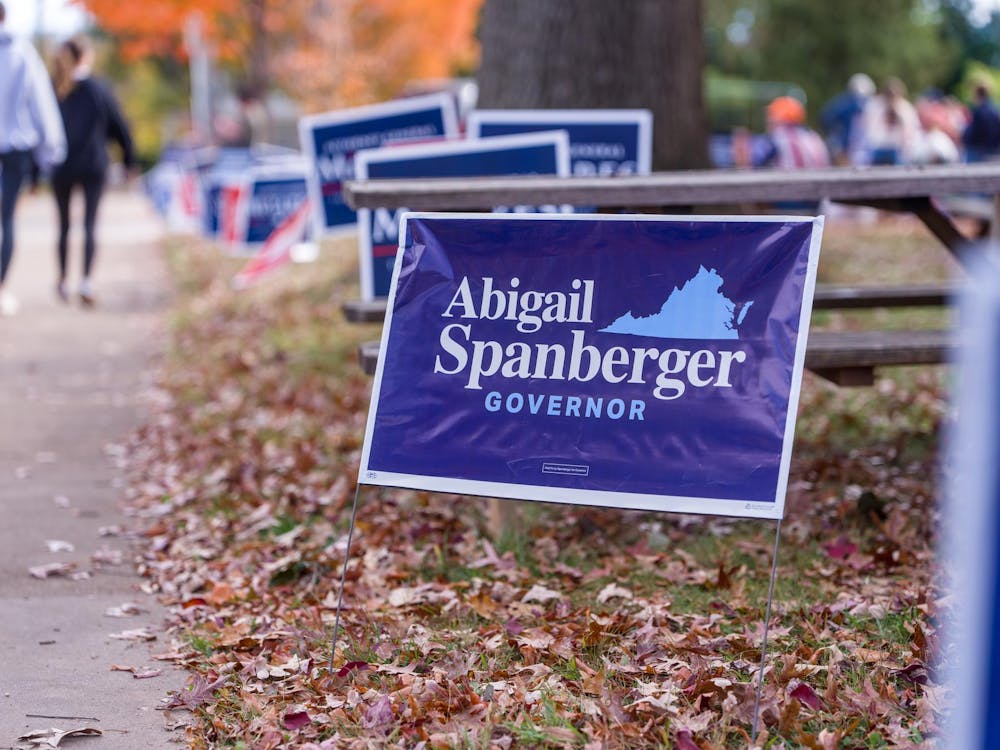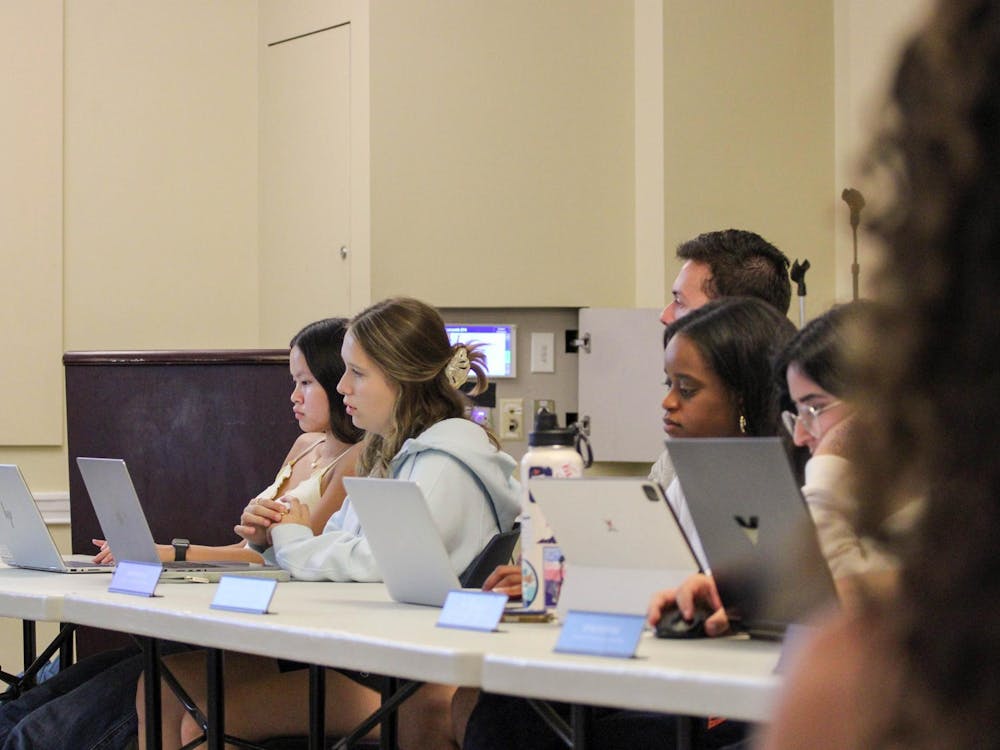Despite the clamor of graduate students protesting on the Lawn and the ongoing budget discord in Richmond, University President John T. Casteen III struck a hopeful and optimistic note for the future at his State of the University address yesterday in Old Cabell Hall.
Casteen covered a variety of topics including the completion of the University's Capital Campaign, the status of funding for University programs and buildings and new on-grounds and international educational ventures.
"We are planning for the University's next revolution ... when the value of human capital and university research is realized," Casteen said.
Casteen noted the disparity between the level of state funding the University receives compared to its peer public institutions. In 1998-99, the general fund of North Carolina provided $23,089 for each in-state student at UNC-Chapel Hill, more than doubling the $11,149 that Virginia gave the University for each in-state student that year.
He credited the managerial work of members of the administration for the University's academic success and consistently high national rankings despite the financial handicap.
He outlined the University's transition from the long-range plans formed during the Capital Campaign to strategic plans that have clear goals and a set timeframe for completion.
One strategic plan is the new arts precinct proposed for the Carr's Hill area that will include new studio art and music buildings and renovate existing buildings by 2020.
Despite the University's remarkably successful Capital Campaign, which raised nearly $1.43 billion before it ended last December, much of Casteen's speech was concerned with the University's financial status.
The money raised by the campaign would not be used for buildings or special programs, but will serve as a "core sum for student scholarships, teacher salaries and aid to graduate students," Casteen said
Casteen announced that for the first time since the mid-1980s, the University is prepared to offer 100 percent of financial need to the incoming first year class. The money raised by the campaign would allow the University to offer more money as grants rather than loans to students receiving financial aid.
Casteen also commented on the concerns of the graduate students protesting outside Old Cabell Hall for health insurance. He said he signed a petition in support of health insurance for graduate students and supports the proposal the University administration sent to the Board of Visitors, which would provide health coverage for the neediest graduate students.
"I believe they have raised an issue that it's time to address," Casteen said.
"I thought the speech was informative and inspiring. I have great trust in President Casteen to lead this University," second-year College student Jaime Vasquez said.
Faculty Senate Chairwoman Patricia H. Werhane said she considered Casteen's speech to be one of his best.
"He talked about the University as a whole," Werhane said. "And he did address the issue of graduate student funding [for health coverage], so he didn't skirt that issue."
Casteen closed by quoting a Chinese proverb that instructs a person to grow rice if he is planting for one year, grow trees if he is planting for 20 years, and grow people if he is planting for a hundred years.
"The state of the University is that it understands it has to grow people," he said.






